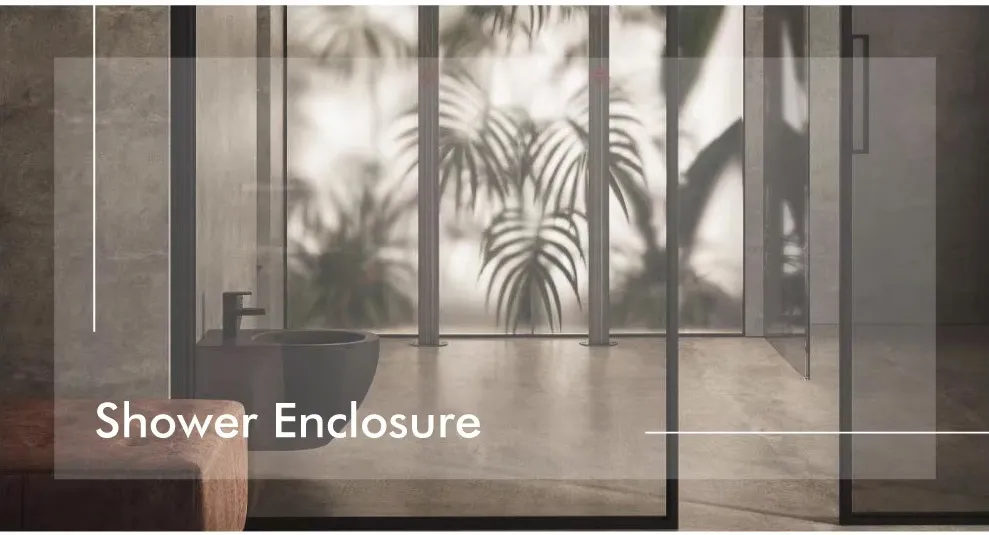
Unveiling Quality Hardware Secrets: Stainless Steel vs Aluminum Alloy for Shower Enclosures

Why Your Shower Hardware Matters More Than You Think
Ever stood in a shower that felt rickety or watched water stains eat away at metal fixtures? That’s the hidden cost of choosing the wrong hardware. Your shower isn’t just where you wash off the day—it’s a sanctuary that stands guard against humidity, temperature swings, and daily wear. shower enclosure materials aren't just functional details; they determine whether your bathroom ages gracefully or becomes a renovation nightmare.
Real-talk: We’ve all seen cheap shower hardware—the flaking chrome finishes, the wobbly handles, the rust creeping along seams. It’s not just an eyesore; it’s money down the drain when replacements come knocking every few years.
Stainless Steel: The Silent Warrior
Imagine metal that laughs at rust and shrugs off scratches. That’s 304-grade stainless steel—the unsung hero in wet environments. Unlike ordinary metals, it contains chromium that forms an invisible shield against corrosion. Think of it like a self-healing armor that repairs minor scratches automatically.
"Homeowners rarely realize their shower hardware endures the equivalent of a car’s lifetime mileage in just a decade. This isn’t just hardware—it’s life support for your daily ritual." – Plumbing specialist at DuraBuild Solutions
Where Stainless Steel Shines:
Aluminum Alloy: The Lightweight Contender
Don’t underestimate the humble aluminum alloy. When aerospace engineers need strength without weight, they turn here. Modern shower enclosure designs leverage aluminum’s malleability for curved enclosures and custom angles that steel would balk at. But there’s a catch—bare aluminum corrodes. That’s why premium alloys get armor-plated with:
- Anodizing (electrochemical hardening)
- Powder-coating (baked-on polymer skins)
- PVD coating (space-grade metallic veneers)
️ Trade secret: High-end aluminum shower tracks often conceal silicone seals within the extrusion—water literally can’t find a path to the metal. It’s like giving your hardware an umbrella.
Head-to-Head: The Moisture Marathon
| Feature | Stainless Steel | Aluminum Alloy |
|---|---|---|
| Corrosion Resistance | ⭐⭐⭐⭐⭐ (Self-healing) | ⭐⭐⭐ (Requires coating) |
| Weight Tolerance | ⭐⭐⭐⭐⭐ (Handles heavy glass) | ⭐⭐⭐⭐ (Reinforced designs) |
| Design Flexibility | ⭐⭐⭐ (Limited curves) | ⭐⭐⭐⭐⭐ (Endless profiles) |
| Cost Over 15 Years | $$ (Higher initial, low maintenance) | $ (Budget-friendly, potential recoating) |
The real shocker? That bargain aluminum hardware often fails at exactly 3.5 years—just after warranties expire. Premium shower enclosure alloys with marine-grade treatments? They’ll dance through decades.
The Water Wars: Science Behind the Splash
Hard water deposits aren’t just ugly—they’re acidic enough to pit untreated aluminum. Stainless steel’s chromium oxide barrier makes water bead up like raindrops on a lotus leaf. Here’s the dirty secret manufacturers don’t advertise:
- Chlorides (found in tap water) aggressively attack aluminum joints
- Moisture traps at screw holes accelerate failure in soft alloys
- PVD coatings on aluminum can outperform stainless if maintained
"We autopsy failed shower hardware monthly. Aluminum screw threads corrode into powdery messes, while stainless survives long after the shower’s demolished." – Failure Analysis Lab, Institute of Building Materials
Making Your Call: Beyond the Shiny Surface
Choosing isn’t about good vs bad—it’s about matching material to lifestyle:
Pick Stainless Steel When:
- You crave a luxury spa ambiance
- Salt air or hard water permeates your space
- Slamming doors or kids’ antics demand toughness
Choose Aluminum Alloy When:
- Budget constraints are paramount
- Sloped ceilings require custom bends
- You’ll maintain sealants annually
Pro Tip: Rub both materials with a magnet. Quality stainless steel typically responds weakly; aluminum never does. It’s your first clue against counterfeit claims.
The Future Is Hybrid
Why choose one? Modern shower enclosure designs merge both: stainless steel anchors at stress points where hinges bite into walls, while aluminum handles decorative caps and ceiling mounts. It’s like having structural concrete behind delicate facades.
Top manufacturers now offer hybrid warranties—30 years on stainless components, 15 on coated aluminum parts. This transparency reveals the truth: no single metal reigns supreme.
Your Shower’s Legacy
The battle between stainless steel and aluminum alloy feels like choosing between an indestructible titanium flask and a beautifully etched glass bottle. One guarantees peace of mind; the other offers artistry with attentive care. Remember: your shower isn’t just a utility—it’s a daily ritual. Its hardware shouldn’t just survive, but elevate every droplet of that experience.
At tomorrow’s breakfast, when your coffee steam rises like shower mist, you’ll remember—great bathrooms aren’t built. They’re crafted from such quiet choices.
Tags:
Recommend Products











